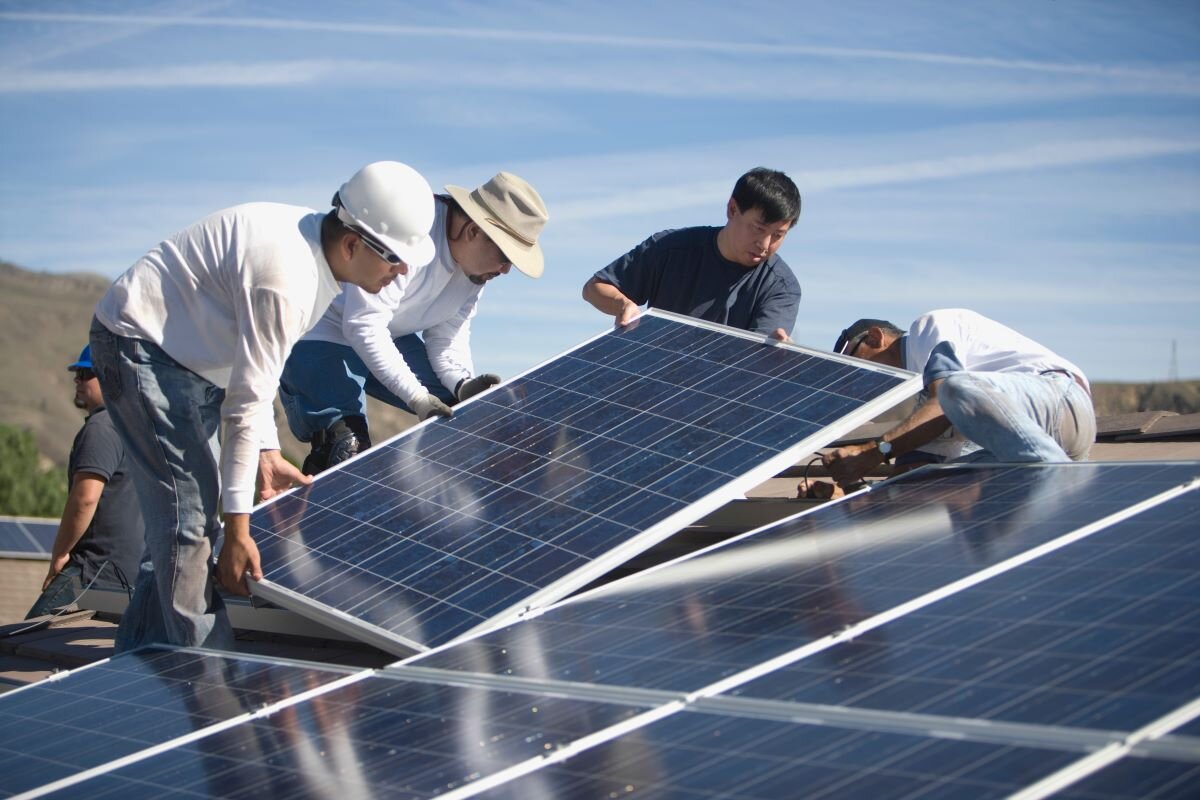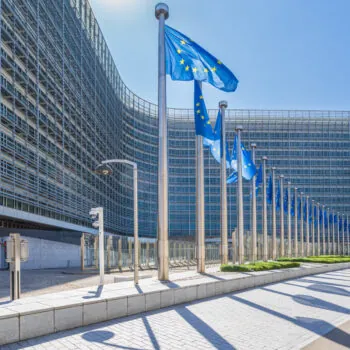- The passage of the Inflation Reduction Act in the House enables the United States to reduce its GHG emissions up to 40% by 2030 compared to 2005, bringing it in reach of its Paris Agreement pledge of 50-52%.
- Having the IRA in their pocket, President Biden and his team can be more assertive in pressing global partners for greater climate ambition, including at COP27 in Sharm-el-Sheikh.
- The IRA relies on incentives in many technologies and sectors, encouraging behavioural change, but does not guarantee outcomes in the way that regulatory emissions standards would.
- The IRA will have implications for global markets for cleantech and critical raw materials which can either drive down costs for all or lead to a race for resources.
Climate & Energy in the Inflation Reduction Act
The United States Congress has passed the Inflation Reduction Act of 2022, ready to be signed by President Biden in the coming days. The package contains up to 369 billion USD in energy and climate measures, including substantial tax incentives, many of which are extensions and expansions of existing tax credits. A total of over 214 bn USD goes towards decarbonizing the energy sector, by far the largest chunk in the climate and energy funding. The bill also includes the creation of the first US green bank in the form of the Greenhouse Gas Reduction Fund with almost 30 bn USD. In addition, the IRA foresees over 5 bn each for green public procurement and investments in clean manufacturing.
Besides the direct funding, the IRA will also enable up to 250 bn USD in new loan guarantees as part of Energy Infrastructure Reinvestment Financing.
Some of the impacts of the IRA will take years to materialize on the ground, but its immediate impact is a mood change in the global climate community, signalling that the United States is back on track and making major strides towards achieving its 2030 NDC. This will change the tone for climate negotiations in the run-up to COP27 in November. The US is no longer at the table with empty pockets but can point to a substantial commitment, even though its ability to deliver on international climate finance requires additional action by Congress.
Whether or not the US can achieve a 40% reduction in GHG emissions by 2030 thanks to the IRA depends mostly on the uptake of the offered incentives. Since most measures are carrots, there is no guarantee as to the actual outcome as investment decisions depend on more factors than tax incentives alone. Nevertheless, the IRA will significantly tilt the cost calculation towards renewable energy and energy efficiency investments.
Another field where the US bill could have global ramifications is in international markets for of cleantech and supply chains of the critical raw materials required for these clean and green technologies. The rapid ramp-up of US demand for cleantech can contribute to lowering costs for these technologies for the whole world. On the other hand, a rapid increase in demand for critical raw materials without ensuring resilient, sustainable, and clean supply chains can lead to a whole range of challenges, starting with rising prices for these raw materials, but also putting in question the provenance of these materials in terms of environmental and human rights issues. If the supply of critical raw materials cannot adapt to the increase in demand, the resulting price hikes may lead to a slowdown of the global energy transition in low- and middle-income countries.
Quotes
Alden Meyer, Senior Associate, E3G:
“The passage of the Inflation Reduction Act puts the US within striking distance of its 2030 Paris emissions reduction commitment, though more work lies ahead for President Biden and his team in making full use of their regulatory authority to close the remaining ambition gap. Special Envoy John Kerry and other US negotiators will now have more credibility as they press other countries to raise their climate ambition in the run-up to the climate summit in Sharm-el-Sheikh.”
Max Gruenig, Senior Policy Advisor, E3G:
“The Inflation Reduction Act of 2022 offers the opportunity to grow global demand for cleantech which could drive down costs for breakthrough technology and accelerate the global energy transition. The risk is that in heating up demand quickly without developing a solid supply chain, prices for critical raw materials could skyrocket, pre-empting less wealthy countries from moving forward on their decarbonization pathway.”
Available for comment
Claire Healy, Head of Washington Office, E3G
m: +1 202-420-0624, claire.healy@e3g.org
Alden Meyer, Senior Associate (Mitigation Ambition, US Policy & Politics)
m: +1-202-378-8619, alden.meyer@e3g.org
Max Gruenig, Senior Policy Advisor, E3G
M: +1-202-550-9072, max.gruenig@e3g.org
– ENDS –
Notes to Editors
- E3G is an independent climate change think tank with a global outlook. We work on the frontier of the climate landscape, tackling the barriers and advancing the solutions to a safe climate. Our goal is to translate climate politics, economics and policies into action. About – E3G
- For further enquiries email press@e3g.org or phone +44 (0)7783 787 863


